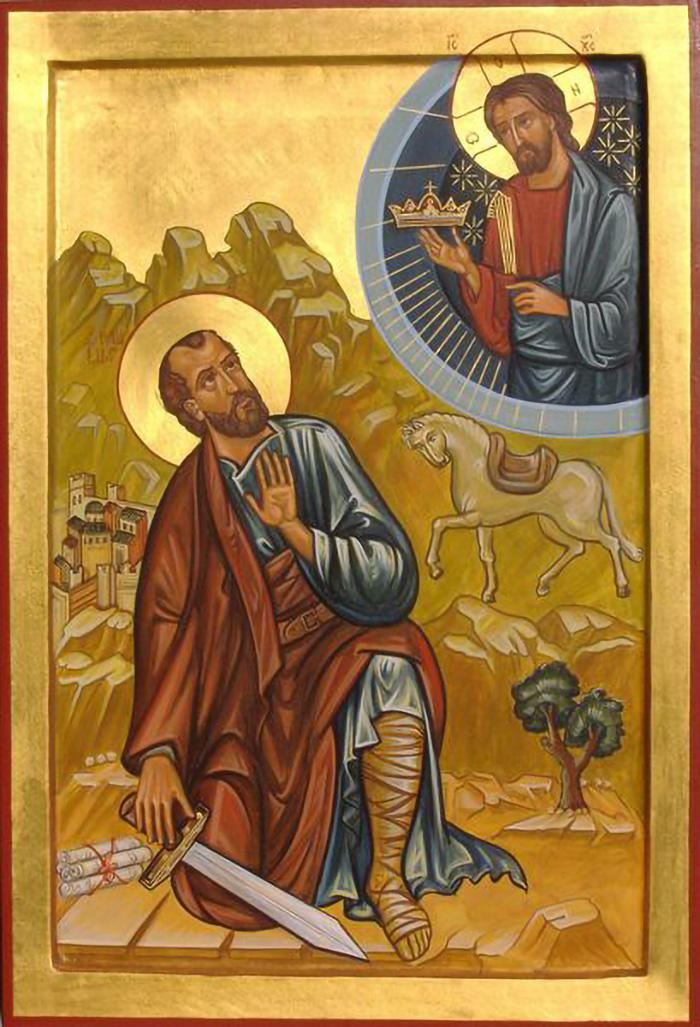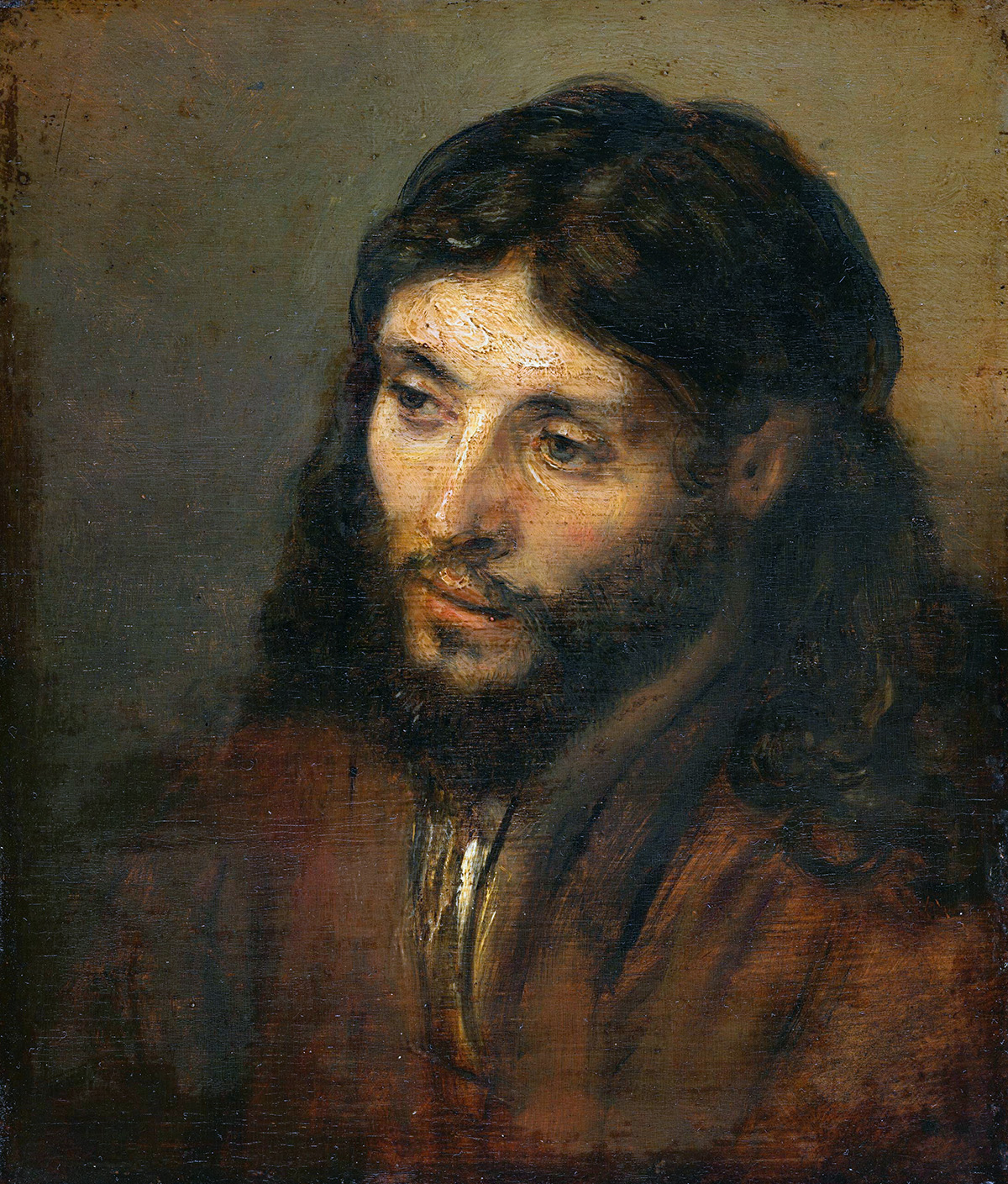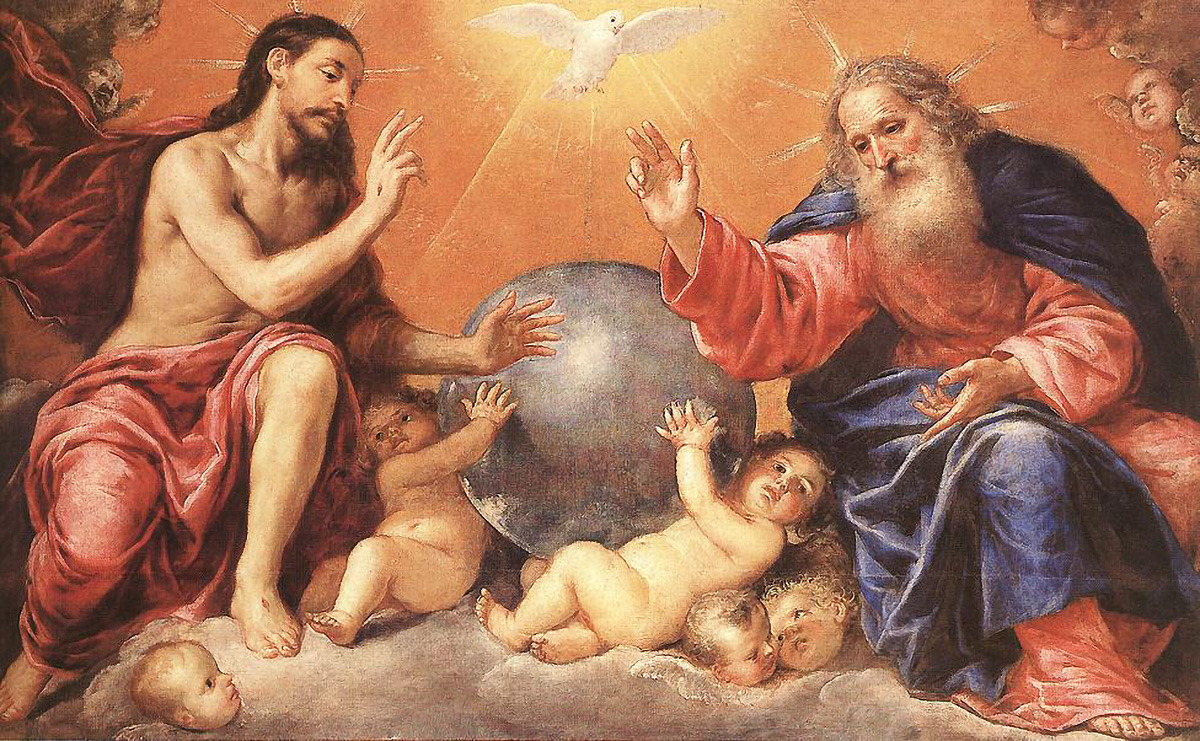Tuesday of the 22nd Week in Ordinary Time: 1 Corinthians 2:10b-16, Luke 4:31-37
Today’s readings present St. Paul’s contrast of spiritual living and worldly living to the early Christian community in Corinth as well as Christ’s healing of a possessed man in Capernaum. Both readings invite us to consider the invisible world of the Spirit where God reigns, a world where Christ is our key to life.
The fuller introduction to St. Paul’s discussion of the Spirit is excluded from the Lectionary reading. Yet it is important because it sets the context; he is discussing the Spirit as a way to explain wisdom, specifically God’s wisdom: “But we speak God’s wisdom, secret and hidden, which God decreed before the ages for our glory … these things God has revealed to us through the Spirit; for the Spirit searches everything, even the depths of God” (1 Cor 2:7,10). This “secret and hidden” wisdom of God, “decreed before the ages for our glory,” is surely of ultimate importance to all humanity. And there is only one agent capable of knowing and of revealing this wisdom: the Holy Spirit of God.

St. Paul makes an analogy between God’s wisdom and ours: “Among men, who knows what pertains to the man except his spirit that is within? Similarly, no one knows what pertains to God except the Spirit of God.” This analogy rests on a common idea of an integral spirit within a being. We are able to speak of this spirit as something separate from the being yet something intimately tied to that being. Thus, “my” spirit is particular to me. I might argue that it is nonsensical to speak of my spirit separate from “me” (whatever that non-spiritual part of me is), but St. Paul speaks of a spirit as separate from the being, as an agent who knows me intimately; likewise for God’s Spirit. But next he points out that the Spirit who speaks with and through the apostles is not their internal human spirit but “the Spirit who is from God.” This direct contact with the Holy Spirit. That’s important because there is no understanding or wisdom of God without the Spirit. God is unknowable. Except with the help of His Spirit.
Thus, St. Paul can describe his entire enterprise of evangelization in this way: “And we speak about [the things freely given us by God] not with words taught by human wisdom, but with words taught by the Spirit, describing spiritual realities in spiritual terms.” This has rather huge implications for how we should treat the writings of the New Testament. Without a doubt, the source of Wisdom is Jesus Christ, the Son, co-existent with the Spirit and the Father. Yet let’s not overlook that this same source spoke to the apostles at Pentecost and afterward. They speak and write with words given to them from the Spirit, “describing spiritual realities in spiritual terms.” This is why the Church refers to these writings as divinely inspired — not because they seem to capture a certain “poetic essence” of divine things, but because they actually come from the Holy Spirit and describe spiritual realities as God reveals them to us.
Beyond this, St. Paul writes about these spiritual matters because early Christian communities were bound to test the wisdom presented to them by the apostles against the wisdom they found in the world. This worldly wisdom tells them that people are selfish, that the rich are “blessed,” that all pleasure is good. What’s more, Corinth is in south-central Greece, 50 miles west of Athens, and the wisdom of the Greek philosophers was a learned perspective often in opposition to Christian wisdom as revealed by God. St. Paul here pointedly writes: “Now the natural man does not accept what pertains to the Spirit of God, for to him it is foolishness, and he cannot understand it, because it is judged spiritually. The one who is spiritual, however, can judge everything but is not subject to judgment by anyone.” Here he counsels that non-spiritual people will call Christian wisdom foolish because it is of an order they cannot understand (unless they accept the Spirit). Furthermore, he points to the supremacy of the order of spiritual wisdom over worldly wisdom because “one who is spiritual … can judge everything.” In other words, the “secret and hidden” wisdom of God pertains to the right ordering of all of creation, and with this wisdom, a spiritual person can “judge everything.” The reciprocal statement is not true: someone with only worldly wisdom doesn’t have the full picture. This is why St. Paul says a person living in spiritual wisdom “is not subject to judgment by anyone” (especially those with only worldly wisdom). His letter is a comfort for these early Christians: despite the scoffing and judgments they might endure, they should remain confident that they are living in the true and transcendent Wisdom of God.

His final sentence, “But we have the mind of Christ,” stresses the indivisible nature of the Trinity. Christ is one with the Spirit and the Father. It is Christ who has interceded on our behalf with the Father and who ushers in the great pouring out of the Spirit into history. It is Christ who is the living Word of God, present with the early prophets and again as a human in Galilee, the incarnation of the Wisdom and Logos living among us. And it is Christ who shared God’s wisdom not just in the Word, but in his actions and ultimately in the Cross. Above all, Christ distinguishes the wisdom they have received from every other philosophical or theological foray humans have made. It’s not just a correct philosophical worldview to compare among so many other worldviews, but God’s singular way of making His Wisdom and self known to us, in a form we can comprehend: a man.
This, ironically, becomes a stumbling block for us: how can a mere man encompass all of God’s wisdom? How can a mere man at the same time also be God Himself? Just yesterday, we heard in the gospel that the Nazarenes from his hometown skeptically declare, “Is this not the son of Joseph?” They are full of judgment, full of their worldly knowledge when they declare to know him as something different than what he claims. To them we can only repeat St. Paul’s words: “The one who is spiritual [in this case, Jesus] … can judge everything but is not subject to judgment by anyone.”

Appropriately, today’s gospel reading immediately follows the episode in Nazareth. It ends as He, we might conclude, physically manifesting the powers of the Holy Spirit, “passed through the midst of them and went away.” St. Luke gives us this striking marker of his nature starting to be revealed, like an early Transfiguration. Today’s gospel takes place in Capernaum, where he teaches in the synagogue on the sabbath, “and they were astonished at his teaching because he spoke with authority.” We hear from the start that He is again recognized, but in a completely different way than He was in Nazareth. He is recognized first by the Jews in the synagogue by a quality of his words, an authority that is found in great, inspired, perhaps prophetic or anointed teachers.
And next, He is recognized by a denizen of the spiritual world. “A man with the spirit of an unclean demon” recognizes Him and cries out, “What have you to do with us, Jesus of Nazareth? Have you come to destroy us? I know who you are–the Holy One of God!” St. Luke clearly ties back in the Nazareth episode by having the demon call him out as “Jesus of Nazareth” and at the same time “I know who you are-the Holy One of God!” This is what the Nazarenes could not wrap their heads around: the fact that God has become a man, a specific man from a specific place, but is nonetheless much more than just a man.
Possession by demons is the sign of spiritual illness. Jesus, by His Word (although it could have easily have been a flick of the wrist or even just a blink of His eye), cures the spiritual illness and casts out the demon. He deliberately speaks, “Be quiet! Come out of him!” He silences the voice of a perverted spirit and removes the world-bound false knowledge of the demons that possess us. The Jews from Capernaum begin to ask the right question: “What is there about his word? For with authority and power he commands the unclean spirits, and they come out.” This is the exact question that we must ask ourselves as we constantly re-convert to Christ and re-discover God: what is there about his word? This is no ordinary word, no ordinary authority, no ordinary power.
The Word of God, made flesh in Jesus, is present in the world to do some specific Spiritual work. The Word of God, made flesh, then crucified, then risen in Jesus, establishes a new reality for us that transcends the created world. In the words of St. Paul, “We have not received the spirit of the world but the Spirit who is from God, so that we may understand the things freely given us by God.”

As some of these thoughts swirled in my head today, it was a pleasure to hear the following from Thomas à Kempis’s The Imitation of Christ during the Office of the Readings: “My son, says the Lord, listen to my words, the most delightful of all words, surpassing all the knowledge of the philosophers and wise men of this world. My words are spirit and life and cannot be comprehended by human senses alone.” This is the answer to the question, “What is there about his word?” This is the sense of wonder we read about in the gospels as people hear Jesus preach and work miracles; it “cannot be comprehended by human senses alone.” The something wonderful is the presence of God, of the Spirit of God, because “My words are spirit and life.” All of life, which is more than our flesh on this earth, can be found in God’s Word.
Now, consider that this Word was a living man, in whom the swirling mysteries of the universe, right and wrong, destiny and salvation, were located. What an incomprehensible mystery and miracle! We think of wisdom as belonging in a book, perhaps in advice garnered from long life experience. But this wisdom, as St. Paul points out, is of a different order. God’s wisdom is made manifest as a stroke of artistic brilliance that only the Creator Himself could devise: a living, breathing being who can speak His Word, with whom He can co-exist, a unique someone who can be perfect and thereby bestow a perfect gift upon humanity.
What is this Word, what is this gift? Here, let us trace the passage from The Imitation of Christ to its origin in the gospel of St. John: Jesus says, “It is the spirit that gives life; the flesh is useless. The words that I have spoken to you are spirit and life” (Jn 6:63). Jesus is referring to specific words he spoke moments before. This is the discourse on the Bread of Life and His listeners are balking at His promise to those who eat his flesh. He tells them, “I am the living bread that came down from heaven. Whoever eats of this bread will live forever; and the bread that I will give for the life of the world is my flesh” (Jn 6:51). He doubles down on this: “for my flesh is true food and my blood is true drink. Those who eat my flesh and drink my blood abide in me, and I in them. Just as the living Father sent me, and I live because of the Father, so whoever eats me will live because of me” (Jn 6:55-57).

For the Church, this means that the sacrament of the Eucharist is part and parcel of the wisdom of God. It is this gift (the actual Flesh and Blood, the actual Spirit acting within the sacrament) that the living Word of God, Jesus Christ, brings to humanity as a way to forever have access to the heavenly liturgy and the kingdom. We don’t divorce this sacrament from the other wisdom that Christ and the prophets present in their teachings, nor do we separate it from His miracles, His death on the Cross, or His Resurrection. The Eucharist is all the more significant because all of these things are made present in the sacrament: the Spirit, Wisdom, the Body and Blood of Christ, the flashpoint of salvation history. He gives it to us to sustain us in spirit and to help us remember the supremacy of the Spirit, especially in a physical world where we are called to sacrifice and serve one another.
This is deeply philosophical and takes slow and thoughtful reading …I enjoyed it. I interpreted our internal spirit as our soul to distinguish this spirit from the third person of the Trinity, the Holy Spirit. Thus I find a new understanding of the H.S. Communicating with my spiritual being or soul. Now if I could only listen to the Holy Spirit more intently…focusing on His daily guidance…that is my prayer.